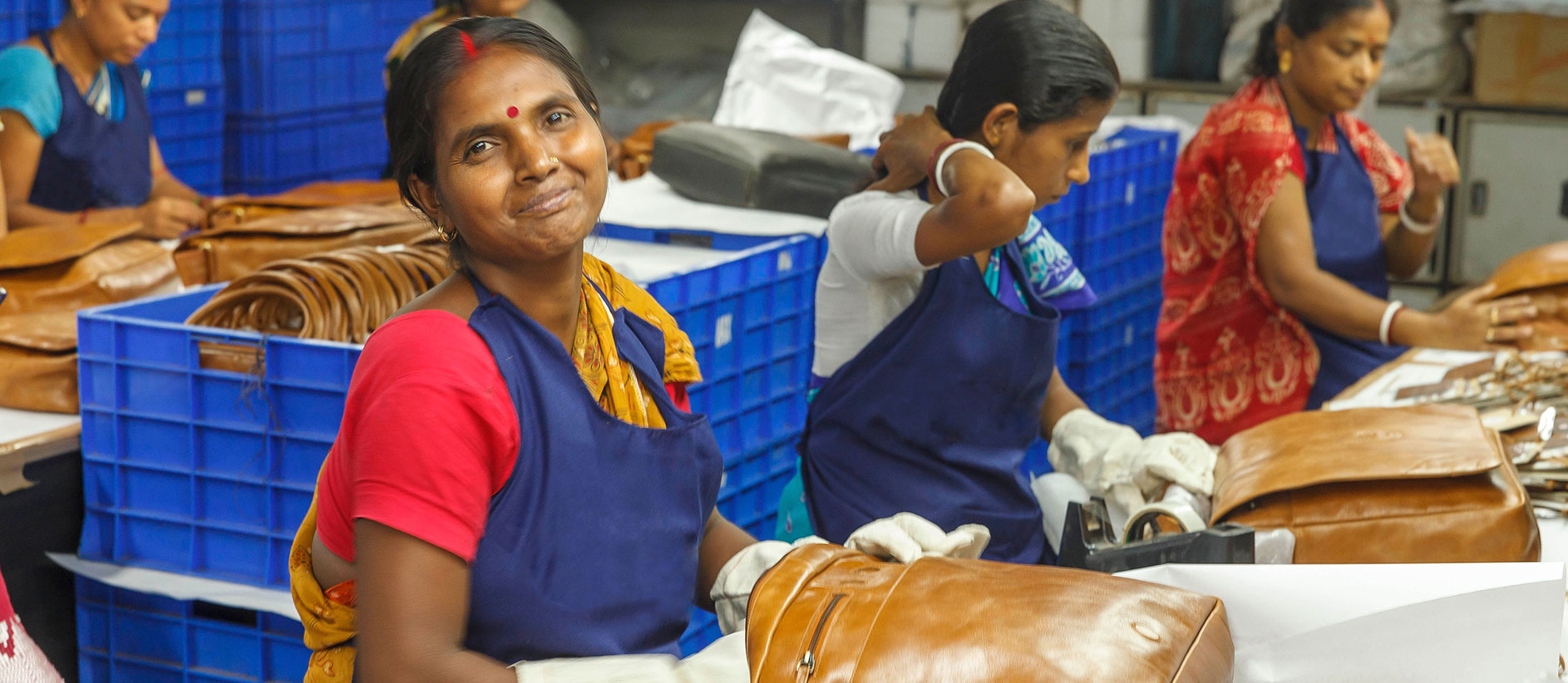It is often emphasized that Danish companies have the possibility to contribute to positive development in developing countries. Now, Dbramante 1928, a small Danish company, is leading the way by establishing a new carbon neutral factory, the first of its kind in Kolkata, India, which is known for substantial leather production.
“We are very pleased that we have succeeded in establishing carbon neutral production of our leather goods, because it matches our ambition to be a more climate-aware and socially responsible company,” said Dennis Dress, managing director and founder of Dbramante 1928.
Selling bags and covers
Dbramante 1928 is a 10-year old company designing and selling leather bags, covers for mobile phones, iPads and laptops as well as watch straps in most of Europe, Russia and the Middle East. The products are designed in Denmark and produced in India in cooperation with an experienced local partner.
When Dbramante 1928 started production in India there were 65 employees at the local factory. Today, there are 600 employees, who until recently were divided on four production facilities.
“Our growth resulted in production being divided on multiple factories. That was inefficient, and therefore it made sense to gather everything under one roof with the opportunity to optimize production and incorporate climate considerations and environment from the start.”
Dennis Dress, managing director and founder of Dbramante
Financing and advice from IFU
Before they started building the new factory, Dbramante 1928 contacted IFU, which has contributed with a loan of DKK 3m for the 5,000 m2 factory. The financing has been used to install 1,000m2 solar panels on the roof, supplying all the energy for the production, rainwater collection as well as new machines and refurbishing of the facilities. Furthermore, IFU has provided financial support through its facility for small and medium-sized enterprises for training of the employees in using new production technology, handling alternative energy resources and CSR conditions.
“We are very happy to work with IFU because they have contributed with valuable knowledge and clear demands, which has lead to a modern factory ensuring a positive work environment for our employees as well as a positive contribution to the local as well as the global climate,” said Dennis Dress.
“Dbramante 1928 proves that small Danish companies can also make a difference when they operate in developing countries. It is an advantage for the company itself to introduce new technology and becoming carbon neutral, however, they can also serve as an inspiration to other companies in the local community,” said Ib Albertsen, Investment Director in IFU and responsible for SMEs.
Contributes to local development
In addition to work environment and climate, Dbramante 1928 also focuses on contributing to the local community. This is done in cooperation with the local NGO, Little Big Help, through which the company has recruited approximately half of the 180 women currently employed at the factory.
“There are 200,000 children living on the streets of Kolkata, and we know that if mothers get a job they will use the money to send their children to school instead of sending them out to beg or collect bottles,” said Dennis Dress.

